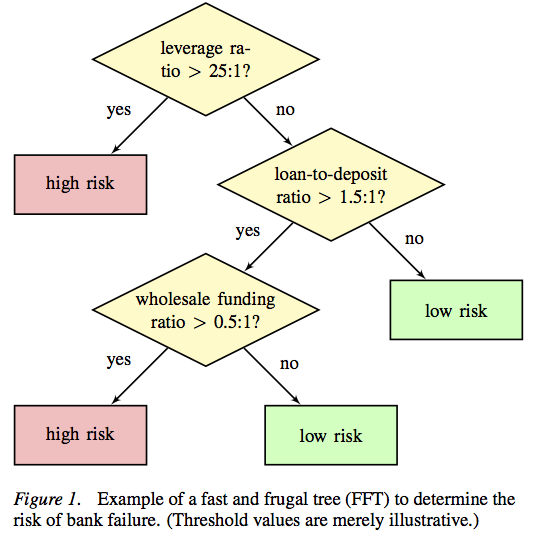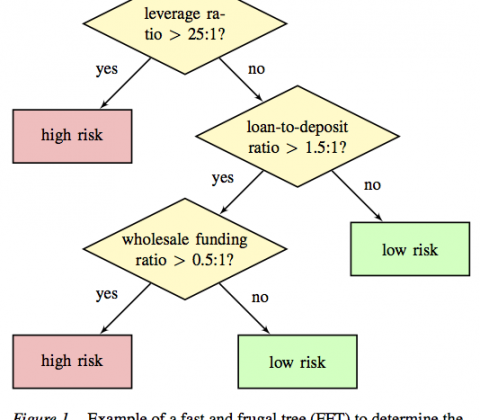

Paper: Heuristics for financial regulation
was very similar to one in which there was perfect information.
J. E. Stiglitz (2010). Freefall: America, free markets,
and the sinking of the world economy, p. 243
Hansjörg Neth, Björn Meder, Amit Kothiyal, Gerd Gigerenzer
Homo heuristicus in the financial world: From risk management to managing uncertainty
Abstract: What — if anything — can psychology and decision science contribute to risk management in financial institutions? The turmoils of recent economic crises undermine the assumptions of classical economic models and threaten to dethrone Homo oeconomicus, who aims to make decisions by weighing and integrating all available information. But rather than proposing to replace the rational actor model with some notion of biased, fundamentally flawed and irrational agents, we advocate the alternative notion of Homo heuristicus, who uses simple, but ecologically rational strategies to make sound and robust decisions. Based on the conceptual distinction between risky and uncertain environments this paper presents theoretical and empirical evidence that boundedly rational agents prefer simple heuristics over more flexible models. We provide examples of successful heuristics, explain when and why heuristics work well, and illustrate these insights with a fast and frugal decision tree that helps to identify fragile banks. We conclude that all members of the financial community will benefit from simpler and more transparent products and regulations.
Keywords: Simple heuristics, finance, risk vs uncertainty, ecological rationality, bias-variance dilemma, fast and frugal decision tree, financial regulation.
Reference: Neth, H., Meder, B., Kothiyal, A. & Gigerenzer, G. (2014). Homo heuristicus in the financial world: From risk management to managing uncertainty. Journal of Risk Management in Financial Institutions, 7(2), 134–144.
Related: Heuristics: Tools for an uncertain world | Cognitive science on economic crises? (CogSci Symposium) | FFTrees: An R toolbox to create FFTs
Resources: Download_PDF | APA_version | Google Scholar
Comments are Disabled